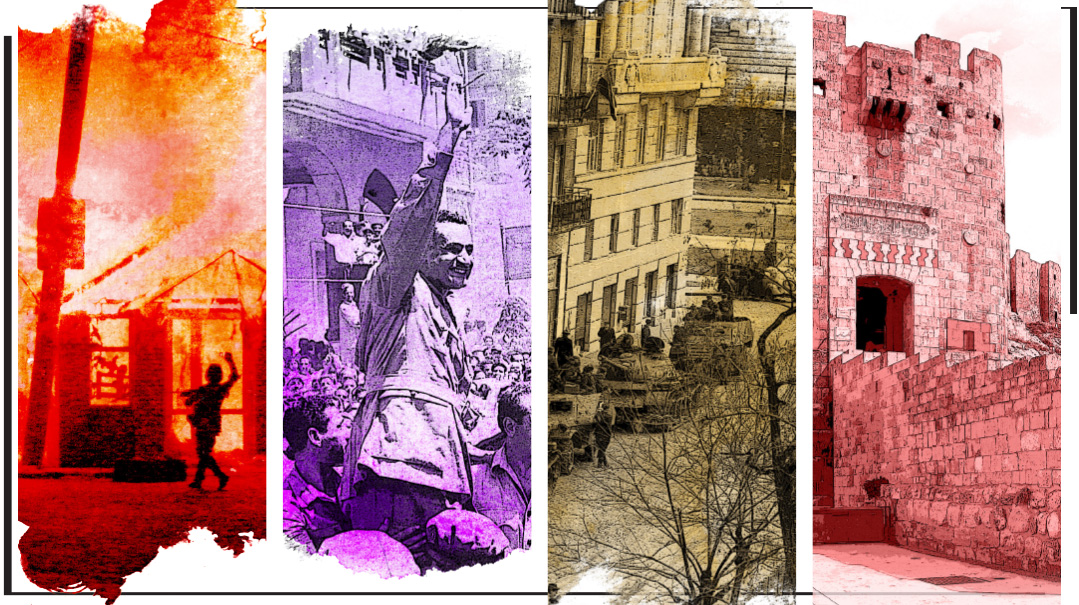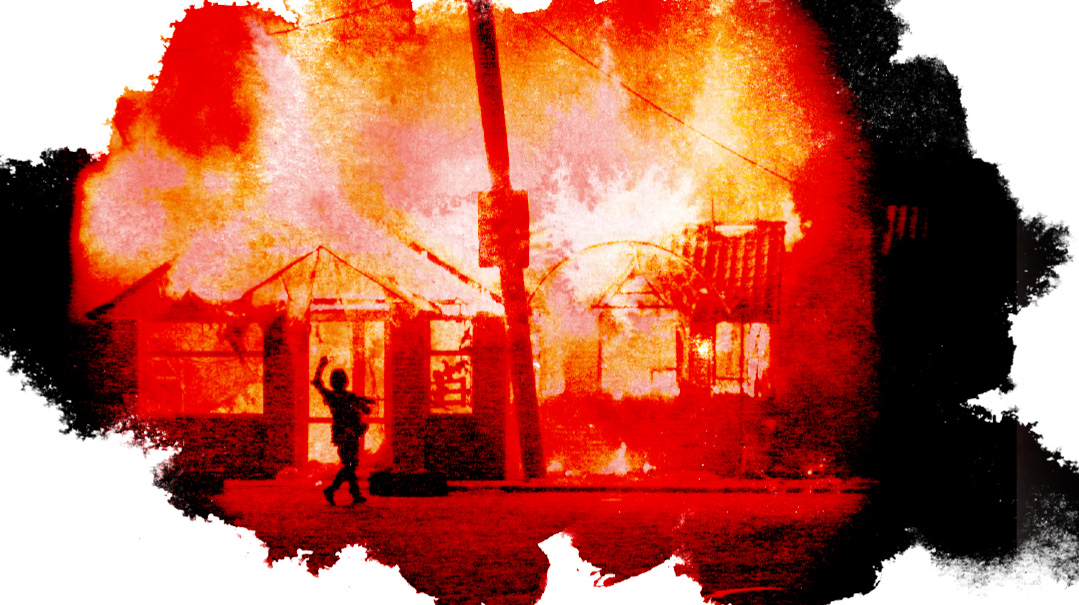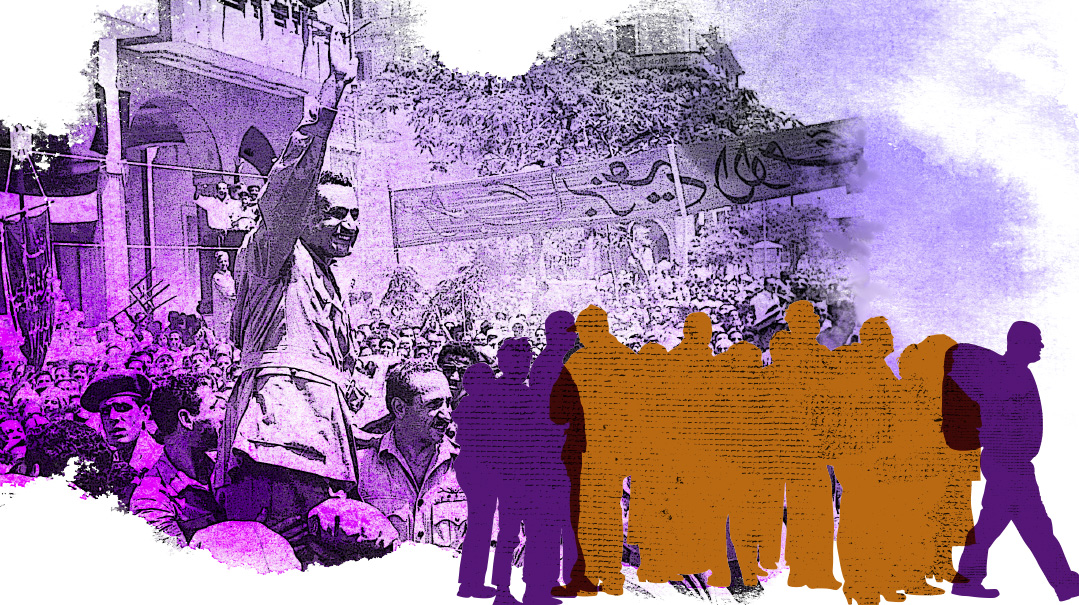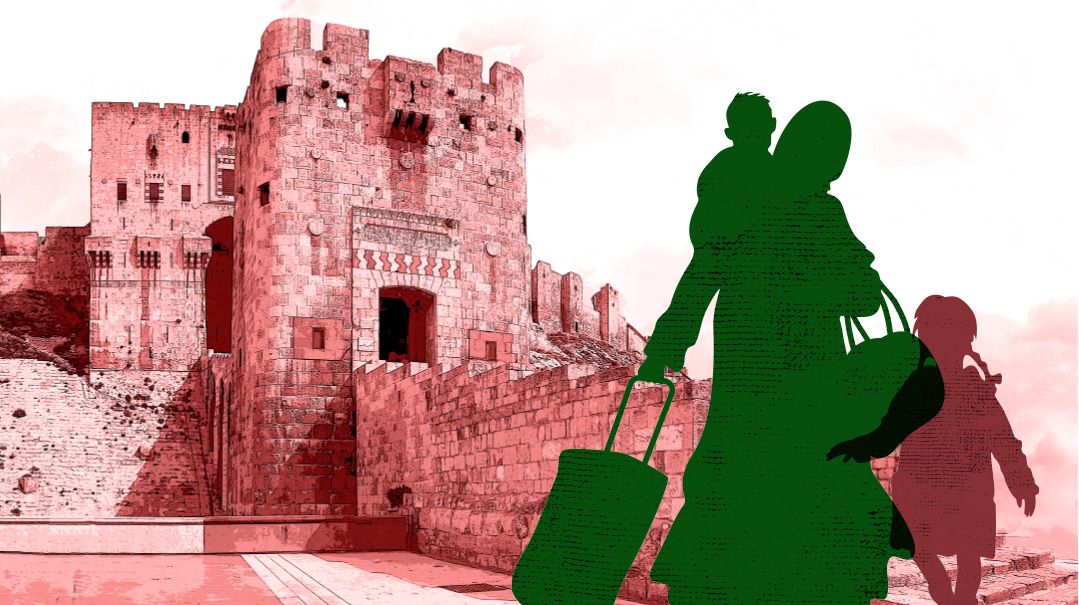On a Truck to Freedom
| August 2, 2022My parents had survived the Holocaust, but Communism in Hungary was a noose around our necks. Would that small crack during the uprising be the window for our escape?
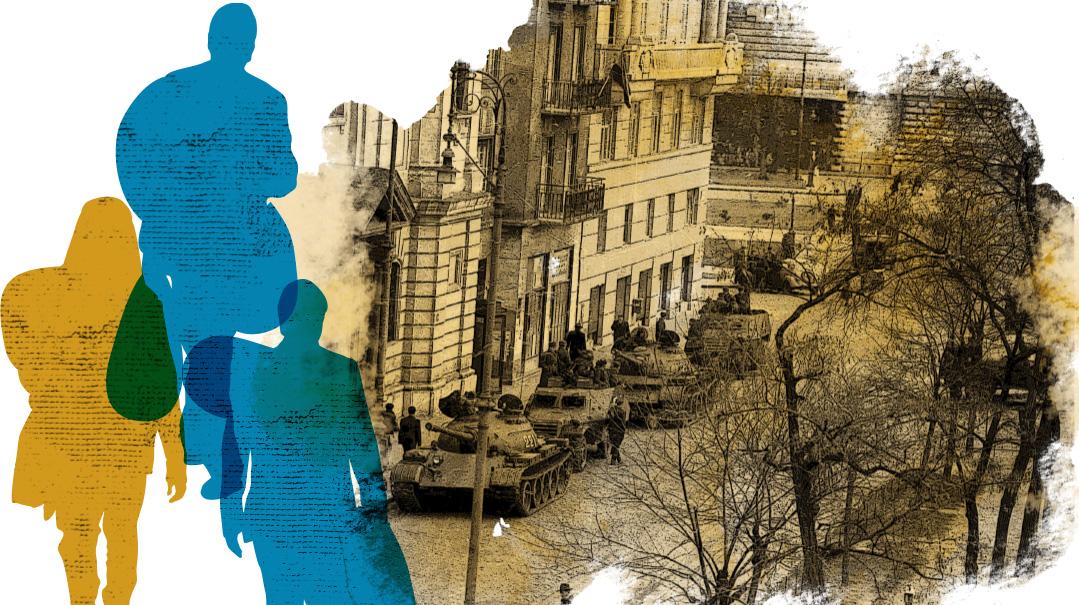
AP Images
As told to Riki Goldstein by Rebbetzin Judith Israel
I
was born into captivity. Postwar Budapest may have been free of Nazis, but because it was liberated by the Soviets and then ruled by the Hungarian Communist party, Hungary of my childhood was a giant prison. There were no passports and no travel agents, because if you were born there, you were there for life.
I was born a year after my parents and older brother survived the Holocaust by hiding in Budapest. The terror they endured, and the tragedy of losing my grandparents, who were discovered and murdered on the last day of the German occupation, was always in the background, but my parents never spoke of it — they wanted to spare us the pain and give us happiness. Instead of the past, they looked ahead to the future they wanted us to build. Yet the Jewish future in Hungary was very bleak at the time.
Officially, religion didn’t exist in the Hungarian People’s Republic. We went to a non-Jewish school, and after school, which ran from 8 a.m. until 2 p.m., my parents quietly arranged for me to learn from a Bais Yaakov teacher. I don’t remember her name, but she was a Hungarian girl who had trained at Sarah Schenirer’s Bais Yaakov Seminary in Krakow before the Holocaust. She might have been the only Bais Yaakov teacher in Hungary at the time. Having survived the war, she lived with her mother in Budapest, and a small group of young girls learned with her every afternoon.
Our shul was tiny, with maybe 20 regulars. We had a very erlicher rav, Rav Moshe Dov Wolner, who later immigrated to Eretz Yisrael and became the chief rabbi of Ashkelon. My father was a prominent member of the shul.
While school was compulsory on Shabbos, I didn’t go — we made up different excuses every week. The one time I had to go — we were out of excuses and something important was scheduled — my mother bandaged my hand so I couldn’t write.
There wasn’t much kosher food, and we couldn’t buy challos for Shabbos, but we were lucky there was a shochet so my mother could get a chicken from the shlacht-hoiz. For Pesach, the kehillah received some precious matzos from the American Joint. Each family was given just three round matzos for the Sedorim. Once, someone from abroad brought us a box of Schmerling’s kosher cheese. It was a round box with triangular-shaped cheeses, each with its own “kosher” label. These were symbols of freedom from a very different world, and we kept those little labels long after the cheese was eaten.
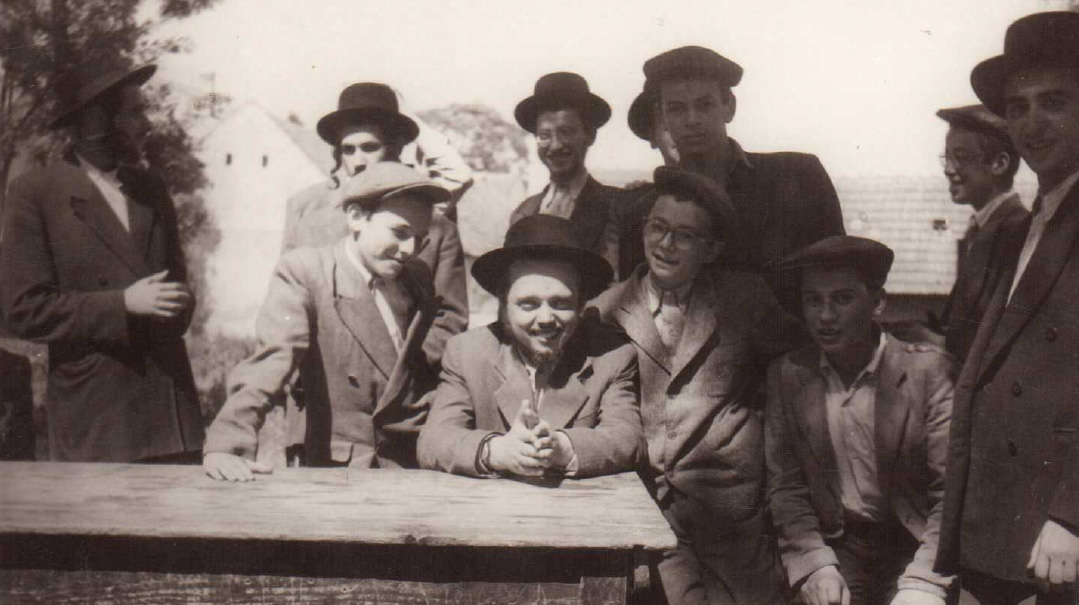
One morning in October 1956, when I was ten years old, I woke up in our second floor apartment to the sight of a bullet whizzing past my window. My parents were both home, and they told me I didn’t need to go to school because of the Hungarian Uprising, a nationwide attempt to throw off the yoke of Communism and Soviet influence. I remember being happy there was no school.
The country was soon in chaos. Hungarian nationalists, cheered on by the populace, pushed away the Russian forces guarding the border. Jews trapped in Hungary quickly realized that the upheaval was our opportunity to escape to a Jewish future. The open borders beckoned.
We heard whispers in the tiny kehillah of groups hiring trucks to reach the border and then guides to smuggle them into Austria. My parents immediately sent word to my 14-year-old brother, who had just gone (illegally) to the town of Paks to learn in the only active yeshivah in the country under Rav Boruch Tzvi Moskowitz, to come home.
The morning after my brother returned, we left our home and walked to the arranged meeting place. It was a cold October morning. I had only the clothes on my back, while my brother carried his tefillin. A truck waited there to carry forty people. My aunt was on it with her identity papers and papers for her son. As her son had already left, the papers would cover my brother, who had the same name. I had no papers, so I was to hide under a pile of blankets. My mother put us on the truck, but then people began to insist she couldn’t accompany us. They pushed her off the ramp, insisting “there’s no more space!”
I don’t think I fully grasped the situation, but my brother knew we might not see her again. Yet when we started to move, my mother smiled and waved, sending us off to our free, Jewish future.
At every checkpoint, everyone had to show their identity papers and I had to hide. When the soldiers would ask where we were headed, the group claimed they were just fleeing the fighting in the city for safety in the countryside.
On Friday afternoon, we reached a small border town and the trucks stopped. Some of the women rummaged for candles in their meager belongings, and right there, they lit Shabbos licht. But we couldn’t stop for Shabbos — the border crossing would be that night.
The truck driver had to be paid, as did the border smugglers. My parents had paid our way, and when night fell, the guide appeared.
“We’ll have to hurry,” our guide prodded us, as he looked at the women and children. “You need to reach the other side before morning.”
Although it had been arranged for him to cross us over the border, he was actually a scoundrel who took the money and abandoned us to escape alone. We had hardly left the village when he said, “I’m turning back — you continue. Do you see those blue lights in the distance? Go toward them, that’s Austria.”
And then he was gone.
We didn’t know if we could trust him. Was that in fact Austria, or was it Communist-controlled Czechoslovakia? But with no map and no knowledge, we had no choice but to walk in that direction.
My brother took my hand and we started to move. There were no paved roads — this was no man’s land, smugglers’ terrain. Across soil and stones, brushed by bitter winds, our group trekked. My brother softly sang zemiros to me as we hurried across the Hungarian soil toward the border.
Soon, it became evident that not everyone could keep up the pace. The adults conferred, and the group split into two groups of twenty, one walking faster, one slower.
The Russian forces kept throwing flares to light up the area and check for refugees. Each time we saw a flare go up, we had to fall flat on the ground. I wasn’t afraid, though, because my brother was protecting me.
Suddenly, the headlights of a Russian patrol vehicle shone in our direction. It drew nearer, and we dropped down. Silent and trembling, I pushed myself into the earth. By a miracle, those lights turned and changed direction before they reached us. The other group was caught and sent back, but we lay undiscovered.
Subdued and shaking now, our group continued to walk, fighting fatigue. Several hours later, we found ourselves on a country road. A man on a motorcycle waited there in the predawn darkness.
We stopped short, waiting and wondering if this was the end, or the very beginning.
The man addressed us in Austrian German — and just like that, we knew we were free. We were brought to a refugee hostel provided by the Austrian government. They gave us drinks and telegrammed our parents to let them know we had arrived. They also telegrammed our cousins in Vienna, who came that day to pick up my brother and me.
Two weeks later, my parents were able to join one of the last groups leaving Budapest. My mother, who had stumbled into a ditch, had a badly swollen ankle, but we were all together, all free.
By early November, the Soviets had had enough. Their troops and tanks rolled into Budapest to brutally repress the uprising, killing thousands of Hungarian civilians and abolishing the independent national government. The borders of Hungary slammed shut again.
My parents moved to London, where my maternal grandmother lived (my aunt had gotten my grandparents out of Hungary to Cardiff, Wales, after the Holocaust). I was ten and a half and didn’t speak a word of English or Yiddish when I started attending Yesodey HaTorah in Stamford Hill, but another girl from Hungary joined at the same time, and we were among several families known as the “Fifty-Sixers,” for the year in which we arrived. I loved being among frum girls in an all Jewish class.
My parents both worked hard in London to set themselves up again. We became part of the “69” shul, a small, family like beis medrash that davened in the Hungarian nusach we were used to. My father, a distinguished but humble man, sat at the back of the shul, but the rav, Rav Shloime Baumgarten, recognized his nobility, and insisted on allotting him a seat in front.
When you escape with your life, you pack everything into a valise and leave the rest behind. My father left a valuable stamp collection in Budapest, which didn’t bother him, but he also had to leave his library of seforim, which pained him greatly. When we heard the Communists had requisitioned the possessions of those who fled Hungary and were auctioning off the books, my mother wanted to retrieve my father’s seforim, but the price to buy back our own stolen items was so exorbitant that Rav Shloime advised us against it.
The seforim stayed there. But the treasure my parents brought out of Hungary was everything they hoped for: a Jewish future for their children and their descendants.
Rebbetzin Judith Israel lives in Manchester, UK, where she gives shiurim to women. Her brother, Rav Ezriel Rosenbaum, has served for decades as a maggid shiur in Gateshead Yeshivah.
(Originally featured in Mishpacha, Issue 922)
Oops! We could not locate your form.

